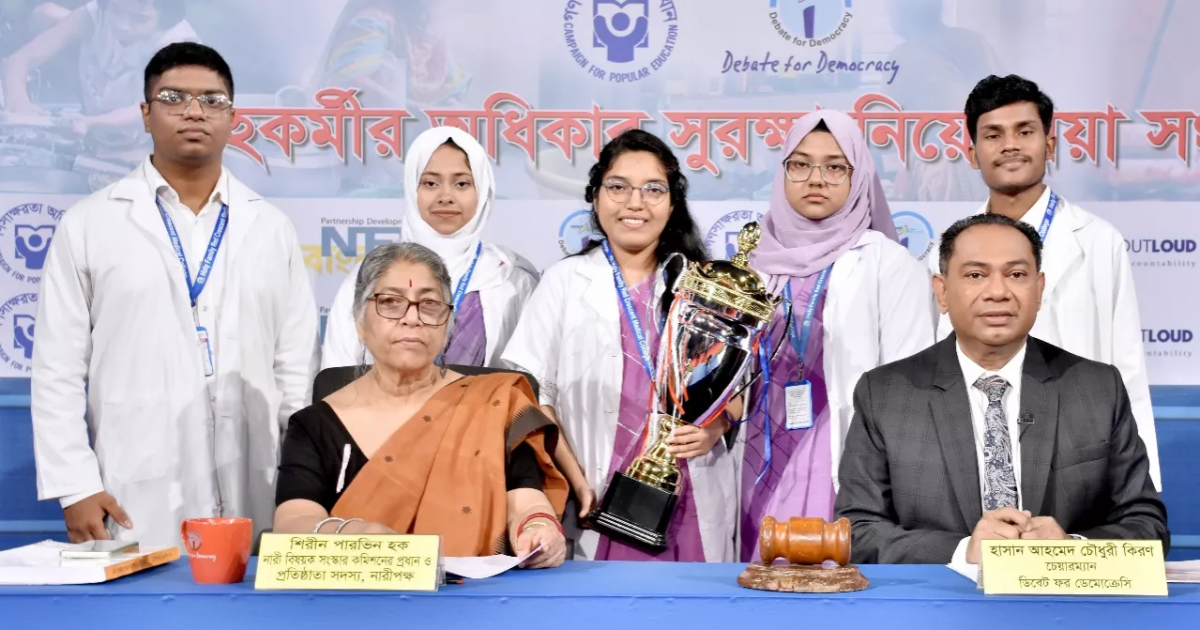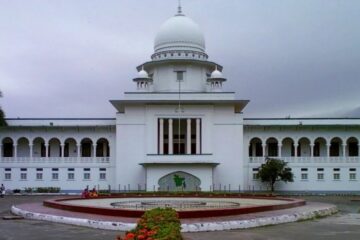The chief of the Women’s Reform Commission, Shireen Parveen Huq, has urged the government to appoint an independent ombudsman to ensure accountability and safeguard the rights of domestic workers in Bangladesh.
“The commission’s report did not specifically address domestic workers’ rights, though it should have. Their wage structure remains undefined. Minimum wages must be set according to living costs, and an ombudsman should be appointed to promote accountability,” she said at a shadow parliament session on domestic workers’ rights, jointly organized by Debate for Democracy and Campaign for Popular Education at the FDC.
The event was supported by NETZ Bangladesh and Education Out Loud and chaired by Debate for Democracy Chairman Hasan Ahmed Chowdhury Kiron.
Shireen stressed the need for political will to ensure fair wages and dignity for domestic workers.
“I hope the next government will prioritize appointing an ombudsman and creating a legal framework to protect domestic workers’ rights,” she added.
She also criticized the use of derogatory terms like “buya” to address domestic workers, emphasizing that such language should be avoided.
She said a national registration system for domestic workers could help secure their social recognition and rights.
Hasan Ahmed said: “A compassionate policy cannot emerge in an authoritarian social structure. The previous government did nothing meaningful for this highly vulnerable group of workers.”
He said that while a domestic worker policy was drafted, it was never implemented. “Domestic workers remain in a system reminiscent of the old British-era slavery, deprived of fair wages and respect,” he said.
He also outlined ten key recommendations for protecting domestic workers, including integrating them into labour law, ensuring written employment contracts, skill development training, easy complaint mechanisms, a national registry, social and health protections, awareness campaigns, compensation for injured or deceased workers, banning child domestic labour, and providing rehabilitation, legal aid, and healthcare for victims of abuse or unemployment.
The shadow parliament, titled “It’s not law but humanity that can protect domestic workers’ rights,” saw debaters from Holy Family Red Crescent Medical College defeat those from Bangladesh University to win the competition.
Trophies, crests, and certificates were awarded to participants at the conclusion of the event.



